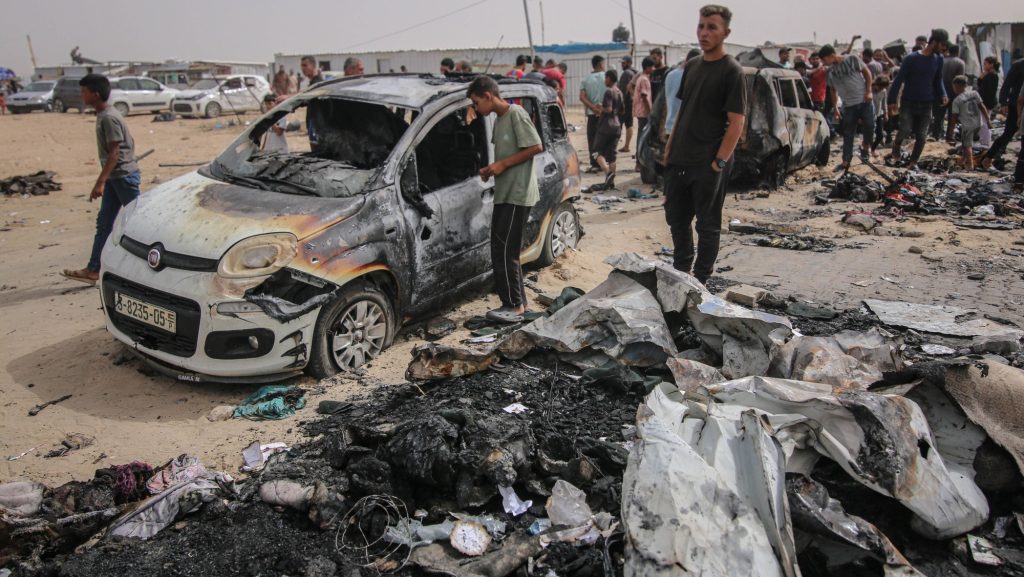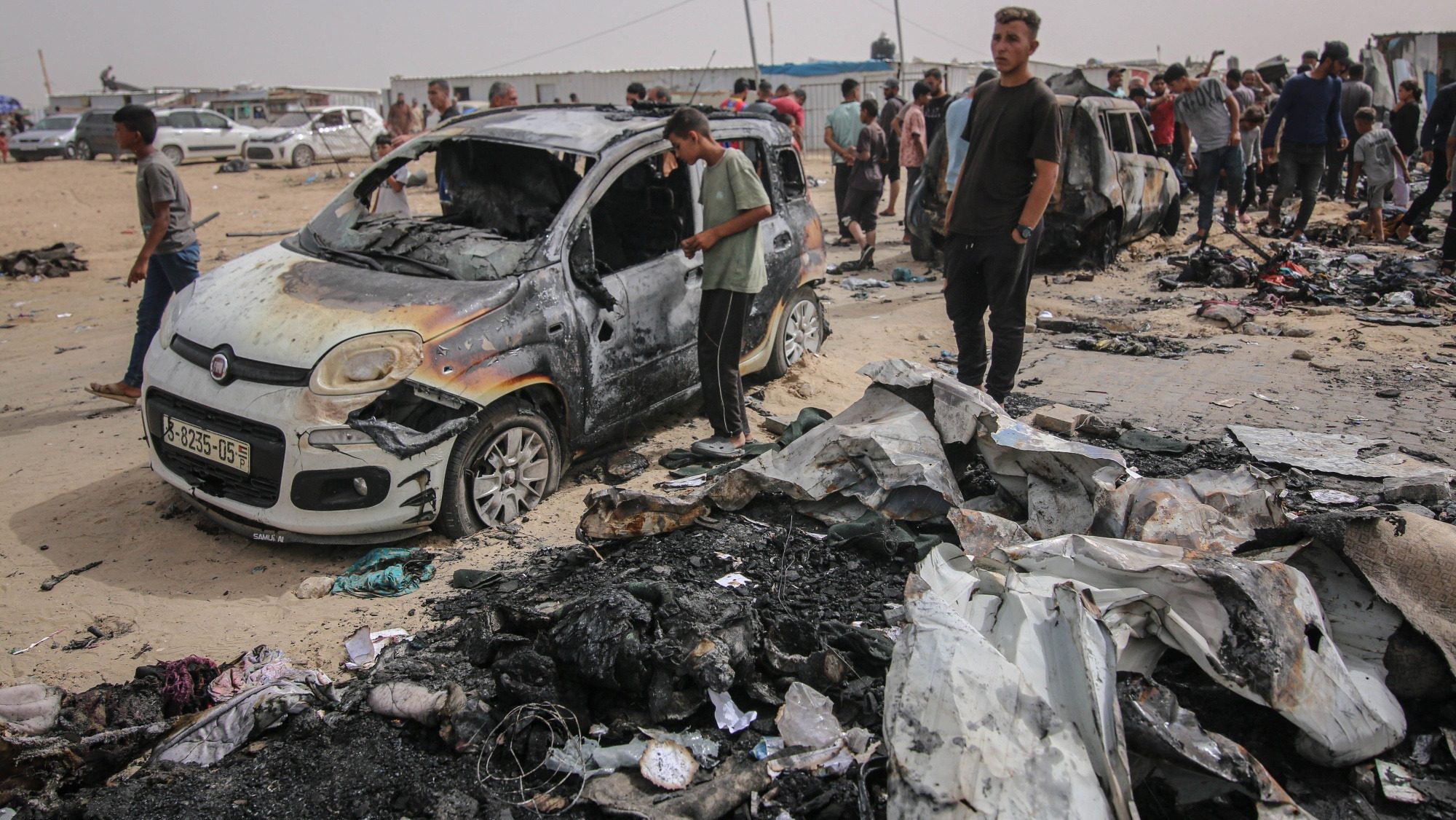Advertisements
U.S. Administration States Israel’s Rafah Operations Do Not Constitute a Major Ground Assault

The White House asserted Tuesday that Israel’s recent actions in Rafah do not cross President Joe Biden’s defined “red line.” Despite the escalation of Israeli military presence and the deadly airstrike in Rafah, the U.S. maintains that these activities do not represent a “major ground operation” that would trigger a shift in U.S. policy or a halt in weapons shipments to Israel.
Details of the Recent Escalations
Israeli tanks were observed entering central Rafah for the first time on Tuesday, following an airstrike that resulted in a significant fire and numerous casualties. The airstrike, which targeted a tent camp for displaced civilians, has drawn substantial international criticism and led to the suspension of U.S. aid deliveries to Gaza.
U.S. Response to Israeli Actions
John Kirby, the U.S. National Security Council spokesman, emphasized that the Biden administration does not consider Israel’s operations in Rafah to be a violation of Biden’s warnings. Kirby clarified that a “major ground operation” involves thousands of troops executing coordinated maneuvers against multiple ground targets, which, according to him, is not currently happening in Rafah.
Advertisements
Analysis of the Airstrike Incident
The U.S. described the recent deadly airstrike as a “horrific incident” likely caused by an airstrike that went “horribly wrong.” This assessment was shared by both U.S. and Israeli officials, who suggested that the fire might have been ignited by the explosion of a fuel tank or weapons stored in the area.
International and Domestic Reactions
The attack on the Rafah tent camp has intensified international scrutiny. The United Nations’ top court has ordered Israel to cease its offensive in Rafah, and the U.N. Security Council is expected to vote on a resolution demanding an immediate cease-fire in Gaza.
Israeli and U.S. Diplomacy
Despite the pressure, Israel has submitted a new cease-fire proposal, offering a “sustainable calm” but not an end to the conflict as demanded by Hamas. In response, Hamas indicated that it had not received any formal proposal from mediators.
Long-Term Outlook
Israeli national security adviser Tzachi Hanegbi indicated that the conflict might extend through the end of the year. He stated that Israel aims to dismantle Hamas’s governmental and military capabilities without imposing a strict timeline.
Historical Context
Biden’s “red line” warning echoes former President Barack Obama’s similar stance during the Syrian civil war in 2012 regarding the use of chemical weapons. The Obama administration faced criticism for perceived inaction when those boundaries were allegedly crossed.


